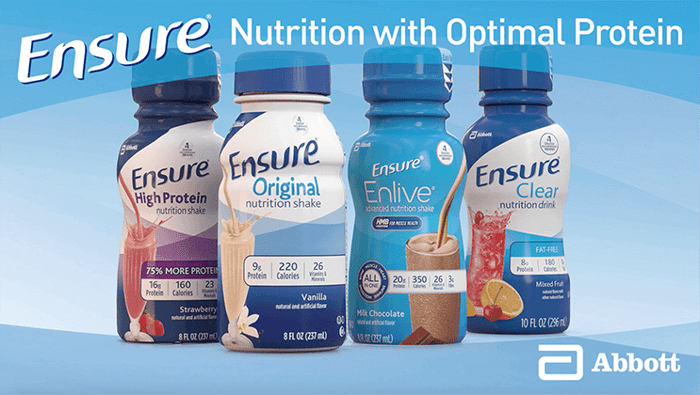As a caregiver for older adults, you play a crucial role in promoting their health and well-being. One aspect that requires careful attention is nutrition. As individuals age, their nutritional needs may change, and certain supplements can help bridge the gap. Fortunately, with advances in food technology and the range of supplements available nowadays, there are options to cater to everyone's needs.
In recent years, there have been significant advances in food technology and the development of specialized supplements that cater specifically to the nutritional requirements of older adults. Recognizing the unique challenges faced by seniors, manufacturers have introduced innovative products that address common deficiencies and provide targeted support.
One notable development is the availability of nutrient-dense meal replacement options. These meal replacements are formulated to be nutritionally balanced, providing a wide range of essential vitamins, minerals, and macronutrients in a convenient and easily digestible form. They are particularly beneficial for seniors with reduced appetites or difficulty chewing and swallowing. These meal replacements come in various forms, such as shakes, bars, and powders, offering flexibility and convenience for both caregivers and seniors.
Furthermore, the supplement market has expanded to include a diverse array of specialized formulations. There are supplements tailored to support specific health conditions commonly experienced by seniors, such as joint health, cognitive function, and eye health. Additionally, there are supplements designed to address specific dietary restrictions or preferences, including gluten-free, lactose-free, or vegan options. This broad range of supplements ensures that caregivers can find products that suit the unique needs and preferences of the seniors they care for.
By incorporating these advancements into your caregiving routine, you can ensure that the seniors under your care receive the necessary nutrients to maintain their health and well-being. Always consult with healthcare professionals and involve the seniors themselves in the decision-making process to create a personalized and effective nutritional plan.
The Nutritional Deficiency Challenge
According to the World Health Organization (WHO), malnutrition is a common problem among older adults, affecting their physical and mental health. Factors such as reduced appetite, decreased absorption of nutrients, and medication interactions contribute to this challenge. Nutritional supplements can help address deficiencies and support overall health.
The Impact of Aging on Nutrient Absorption
As we age, our bodies may experience a decline in the ability to absorb and utilize essential nutrients. The National Institute on Aging (NIA) highlights that older adults often have lower levels of vitamin D, calcium, and vitamin B12. This underscores the importance of considering nutritional supplements to meet their specific needs.
Vitamin D plays a vital role in bone health, immune function, and muscle strength. It helps the body absorb calcium, which is essential for maintaining strong bones. The National Institutes of Health (NIH) recommends a daily intake of 800-1,000 International Units (IU) of vitamin D for older adults. However, a study published in the Journal of the American Geriatrics Society found that about 50% of older adults in the United States have insufficient levels of vitamin D. Supplements can be an effective way to ensure adequate levels, especially for individuals with limited sun exposure.
Calcium is essential for maintaining strong bones and preventing osteoporosis, a condition characterized by brittle bones and an increased risk of fractures. The National Osteoporosis Foundation (NOF) suggests a daily intake of 1,200 milligrams (mg) of calcium for adults aged 51 and older. However, studies show that many older adults fail to meet the recommended calcium intake through their diet alone. Supplements, along with calcium-rich foods like dairy products and leafy greens, can help achieve the recommended intake. It's important to note that excessive calcium intake may increase the risk of kidney stones, so it's best to consult with a healthcare provider to determine the appropriate dosage.
Vitamin B12 is necessary to maintain healthy nerve cells and produce DNA. As people get older, their ability to absorb vitamin B12 decreases. Deficiency in this vitamin can lead to anemia and neurological problems. The National Institute of Health points out that older adults are more prone to Vitamin B12 deficiencies. Supplements or fortified foods can help address this deficiency, especially for seniors who have difficulty absorbing B12 from food sources.
Practical Guidance for Incorporating Nutritional Supplements
Before introducing any supplements, you should consult with the senior's healthcare provider. They can assess their specific nutritional needs, evaluate potential interactions with medications, and recommend appropriate supplements. The healthcare provider can also conduct blood tests to identify any specific deficiencies that need to be addressed.
Choose high-quality supplements from reputable manufacturers to ensure their safety and efficacy. Look for certifications such as the United States Pharmacopeia (USP) seal, which verifies the product's quality standards. Discuss any allergies or sensitivities the senior may have with their healthcare provider to avoid adverse reactions or interactions with other medications.
Each senior has unique nutritional requirements, and their supplement regimen should reflect this. The caregiver, in consultation with the healthcare provider, can determine the right combination of supplements and dosages based on the senior's health, dietary intake, and specific deficiencies. It's important to note that excessive intake of certain nutrients also has adverse effects, so moderation is key.
Nutritional supplements are not meant to replace a healthy diet but rather to complement it. Encourage the seniors to consume a balanced and varied diet that includes whole grains, lean proteins, fruits, vegetables, and healthy fats. Supplements can serve as a supplement to fill in nutritional gaps. It's important to emphasize that supplements should not replace real food and should be seen as additions to an already well-rounded diet.
Establish a schedule and consider reminders or pill organizers to help them remember to take the supplements regularly. Make it a positive and pleasant experience, and involve the senior in the decision-making process as much as possible.
For guidance and assistance with choosing specific supplements from the massive range on the market nowadays, it’s a good idea to speak to specialists in the field. At LL Medico, we have more than 25 years of experience with nutritional products. We also stock a wide range of other senior care supplies like incontinence products, mobility aids and much more.
Conclusion
As a caregiver, your role in optimizing the nutritional health of seniors is vital. Nutritional supplements, alongside advances in food technology, offer a wide range of options to address specific deficiencies and cater to individual needs. By understanding the importance of these supplements, being aware of key nutrients of concern, and following practical guidance, you can support the well-being and overall health of the seniors under your care.
Embrace the advancements in food technology and the diversity of supplements available to create a comprehensive and tailored approach to senior nutrition. Give us a call at (855) 422-4556 or chat with us online between 9 am and 6 pm EST. Alternatively, you can email us 24/7 at support@llmedico.com.
Top of Form







 855-422-4556
855-422-4556 Chat
Chat E-Mail
E-Mail Monday - Friday 9:00AM to 5:00PM EST
Monday - Friday 9:00AM to 5:00PM EST





 Shopping With LL Medico
Shopping With LL Medico
 855-422-4556
855-422-4556